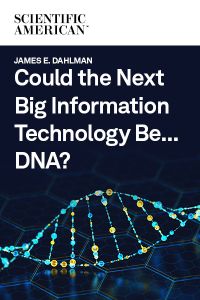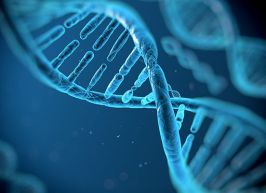
Could the Next Big Information Technology Be ... DNA?
How DNA is used to store – and generate – information at extreme scales
Read or listen offline
Recommendation
Scientists are exploiting their relatively new capabilities to read and write DNA. They make DNA markers that help them simultaneously study large numbers of samples – nanoparticles, cell types, drugs – in a way never before possible. But because everyone’s genetic information is still stored in DNA – that is, after all, its original purpose – storing other information in it is risky. Anyone with a sequencer could gain access to personal data. Read on to learn how putting information in DNA has been a boon for research, and why it’s is not quite yet ready to replace your hard drive.
Take-Aways
About the Author
James E. Dahlman is an assistant professor at the Wallace H. Coulter Department of Biomedical Engineering at the Georgia Institute of Technology and Emory University. His laboratory works at the interface of drug delivery, nanotechnology, genomics and gene editing.
















Comment on this summary or Start Discussion